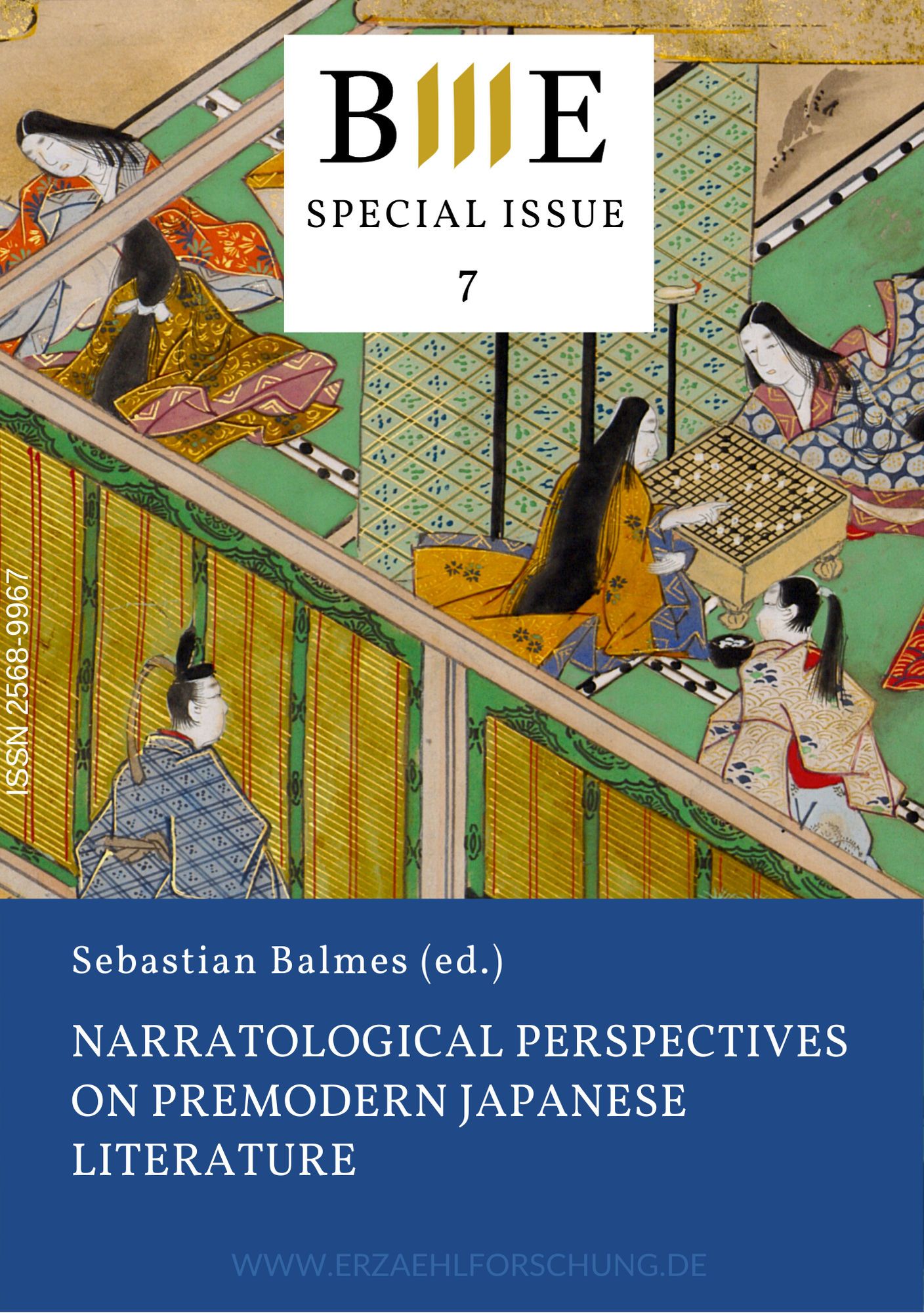Linguistic Characteristics of Premodern Japanese Narrative. Issues of Narrative Voice and Mood
DOI:
https://doi.org/10.25619/BmE20203122Schlagworte:
Premodern Japanese LiteratureAbstract
In order to examine linguistic characteristics of classical and medieval Japanese literature, this article considers two categories that Gérard Genette defined in his ‘Narrative Discourse’: voice and mood. First, the specific ways in which narratorial presence is created in premodern Japanese texts and how they relate to grammatical person are discussed. Subsequently, the paper scrutinizes the status of the narrator(s) of ‘The Tale of Genji’ and other narratives, who are neither fully heterodiegetic nor homodiegetic, not only due to linguistic conventions but also because of premodern conceptions of literature. The section on mood is divided into perspective and distance. It is shown how ‘internal’ focalization is constituted in Japanese narrative, and what problems are raised by the distinction between voice and perspective. Finally, the definition of distance is reconsidered through the analysis of Japanese texts, leading to a conclusion that coincides with theoretical observations, and to the realization that in Japanese narrative distance can hardly be determined by speech representation.
Downloads
Veröffentlicht
Ausgabe
Rubrik
Lizenz
Copyright (c) 2020 Sebastian Balmes

Dieses Werk steht unter der Lizenz Creative Commons Namensnennung - Nicht-kommerziell - Keine Bearbeitungen 4.0 International.





